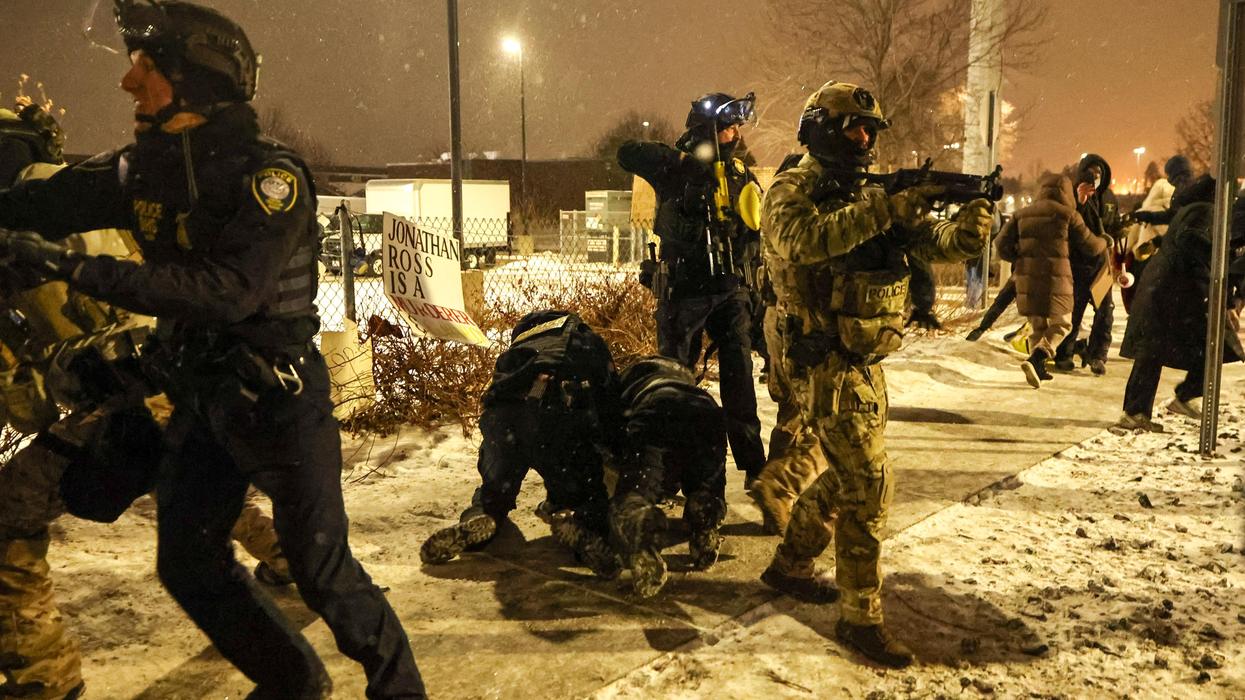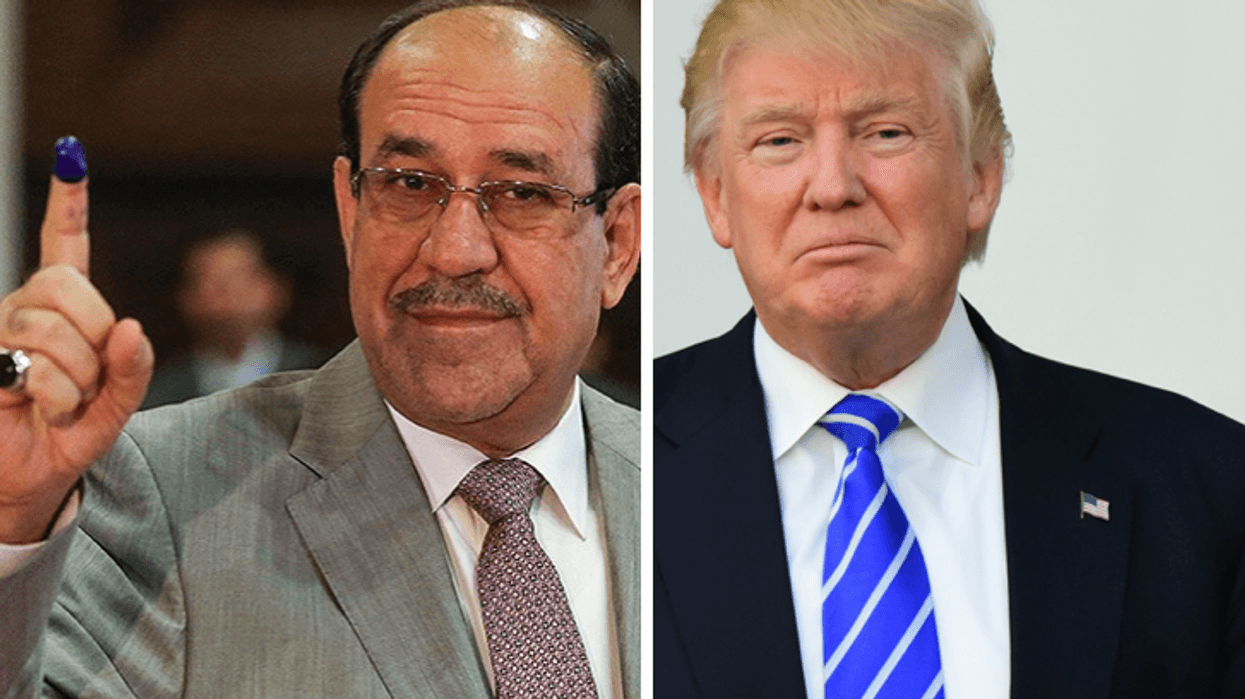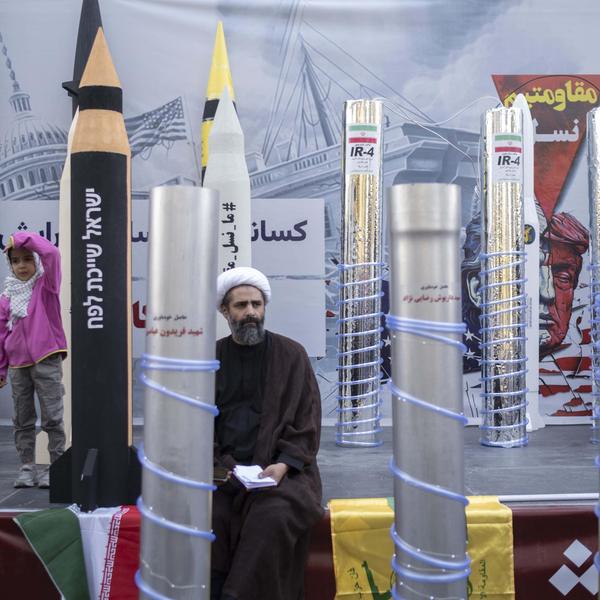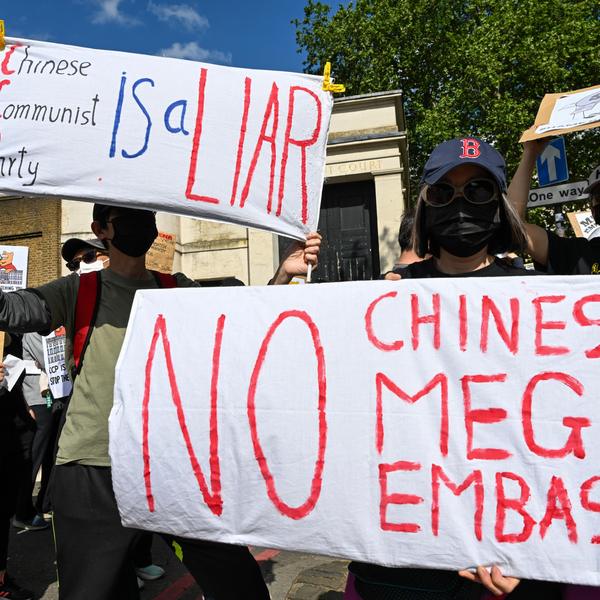Hamas’s horrific attacks last weekend and the subsequent Israeli bombings of Gaza have put the entire world on edge.
Beyond concerns for the fate of the 2.2 million Palestinians trapped in Gaza with nowhere to flee, there is also a palpable fear that the conflict will escalate into a region-wide war. None of the main actors — with the possible exception of Hamas — want or benefit from such a war, yet all sides are acting in a manner that increases its risk by the day.
There is little to suggest that Israel or Prime Minister Benjamin Netanyahu seek to widen the war. The chaos in Israel and his government’s failure to not only prevent the attack but also manage its aftermath defies the idea that he was preparing or yearning for a larger war. Israel would indeed find itself in a precarious situation if it ends up in a two-front war with Hezbollah attacking Israel from the north.
There is also nothing to suggest that Hezbollah desires a war with Israel either, despite the Wall Street Journal reporting that Hamas had coordinated the attack with Hezbollah and Iran. Hamas alone attacked Israel, and there was no simultaneous or subsequent large-scale attack from the north. Given Lebanon’s dire economic situation — it is in its fourth year of a deep economic and political crisis, with inflation at 350% and 42% of the total population facing acute food insecurity — war with Israel would risk bringing the entire nation to a breaking point.
Similarly, there is no evidence that Tehran would benefit from a larger war. As a European diplomat put it to me, “Iran prefers a low-intensity conflict with Israel, not open warfare.” The regime in Tehran has just survived one of the greatest challenges to its rule and appears relieved that the anniversary of the killing of Mahsa Amini did not reignite these protests on a large scale.
Its economy is also in dire straits, and its focus has mainly been on reaching a de-escalation understanding with Washington that would secure the release of Iranian funds and the softening of the enforcement of US sanctions on Iranian oil sales. Rather than coordinating the attack with Hamas, Tehran was taken by surprise, according to US intelligence.
Tehran has also taken the unusual step of sending a message to Israel through the United Nations, stressing that it seeks to avoid further escalation. It has, however, warned that it will be compelled to intervene if Israel continues bombing Gaza.
If there is any rationality in the Biden administration’s Middle East policy, it too will oppose further escalation of the fighting. Between the war in Ukraine and a potential crisis with China over Taiwan, the Biden administration simply cannot afford a broader war in the region. The administration’s focus — however misguided —has instead been on securing a normalization agreement between Israel and Saudi Arabia. The White House has been so obsessed with this idea that they have even begun considering offering the Saudi rulers a security pact as well as nuclear enrichment technology. War in the Middle East has not been on Biden’s agenda.
Finally, the Arab states in the region, from Egypt to Syria to Saudi Arabia, have nothing to gain and much to lose from a larger war. Egypt fears a massive influx of Gazans into the Sinai that, in the words of David Hearst, has the “potential to tip Egypt over the edge after a decade of economic decline.” Syria’s Bashar al-Assad has been focused on normalizing relations with Sunni Arab states and re-entering the Arab League — critical both for his political rehabilitation and Syria’s economic rebuilding.
Saudi Crown Prince Mohammed bin Salman — who was on the verge of normalizing relations with Israel and throwing the Palestinians under the bus — felt compelled to revive Saudi Arabia’s traditionally pro-Palestinian profile given the wider Arab world's immense anger over Israel's bombing of Gaza. His call this week with Iranian President Ebrahim Raisi — the first time the two ever spoke — was at least partly motivated by a desire not to cede leadership on this issue to Tehran.
Both a bloodbath in Gaza and a broader war will severely complicate his ambition to assert himself as the undisputed leader of the Arab world, given his neglect of and disdain for the Palestinians.
Despite clear interests on almost all sides against a regional war, all sides are acting in a manner that makes such a war increasingly likely. If Israel's invasion of Gaza proves successful in terms of decimating Hamas, Hezbollah may feel compelled to intervene — not necessarily to save Hamas, but to save itself.
A successful Israeli campaign against Hamas will tilt the balance in the region, with Israel having freer hands to go after Hezbollah. An attack from the north by Hezbollah may not save Hamas as much as it will make it too costly for the Netanyahu government to extend the war into Lebanon after Hamas has been defeated. Hezbollah may not be able to prevent an Israeli victory, but it will have a compelling interest to turn it pyrrhic.
Hezbollah’s involvement, in turn, will bring Iran much more directly into the conflict. While declaring its opposition to a wider war, Iran’s Foreign Minister Hossein Amir-Abdollahian has warned that unless Israel stops its attacks, the war will be widened and that Israel will suffer “a huge earthquake.”
With Iran and Hezbollah drawn into the conflict, the Biden administration will be under tremendous pressure to intervene militarily despite clear U.S. interest in staying out. There is little in Biden’s conduct thus far that suggests that, in this scenario, he will prioritize America’s long-term strategic interest over what is politically expedient for him in the immediate term.
Direct American military intervention in Gaza, or against Hezbollah and Iran, is all but certain to generate major attacks against U.S. troops and interests throughout the Middle East by armed groups supported by Tehran. Militias in Iraq and Yemen have already issued stern warnings of a multi-front response to any American intervention.
The White House is well aware of these escalation risks. At a meeting earlier this year between two senior American officials and a high-level representative of the Iranian government, one of the Americans warned Tehran that if it enriched uranium to 90% purity, the U.S. would strike Iran militarily. Without skipping a beat, the Iranian official responded that Iran would respond immediately by destroying fourteen American bases in the region by raining thousands of rockets on them within 24 hours.
It is in this context that the Biden administration’s refusal to call for de-escalation and a ceasefire — or to practically pressure Israel to exercise its right to defend itself within the confines of international law — is so problematic.
It is not just the moral bankruptcy of the Biden White House to stand in the way of efforts to end the crisis (shocking internal emails have revealed that State Department officials have been prohibited from using terms such as de-escalation, ceasefire, ending the bloodshed, and restoring calm). It is not the blatant disregard for human life shown by the White House when its spokesperson blasts Democratic lawmakers advocating for a ceasefire and calls them “repugnant.”
It is also the strategic malpractice of giving Israel a carte blanche to act as it wishes despite knowing and understanding the tremendous risk that Israel’s unrestrained actions in Gaza can drag Washington into a wider regional war that neither serves the interest of the U.S. nor Israel. The combination of issuing warnings to Hezbollah and Iran to show restraint, while demanding no restraint from Israel, may be politically expedient for Biden, but it is likely to produce the very nightmare scenario Biden presumably seeks to avoid.
As Ben Rhodes from the Obama White House put it in his podcast this past week, counseling restraint and calls “to follow the laws of war, are not to show a lack of regard for what Israel has gone through. On the contrary, it’s kind of what I wish someone had done for the United States after 9/11.”
But Biden is not only giving Israel bad advice. He is giving Israel bad advice that risks getting thousands of Americans killed in yet another senseless and preventable war in the Middle East. If he lacks the humanity to call for a ceasefire to prevent the killing of thousands of Palestinians, he should at least not abdicate his responsibility as President of the United States to keep Americans out of the killing zone.
- How to avoid a wider Mideast conflict ›
- Will US troops be drawn into the Israel-Gaza war? ›
- Why Hezbollah doesn't want a full-scale war. Yet. - Responsible Statecraft ›
- Poll: Majority of Americans support ceasefire in Gaza - Responsible Statecraft ›
- Leading political scientists call for ceasefire in Gaza - Responsible Statecraft ›
- Over 70% of Democrats support a ceasefire in Gaza: Poll - Responsible Statecraft ›
- Did Biden just escalate the Gaza War? | Responsible Statecraft ›
















